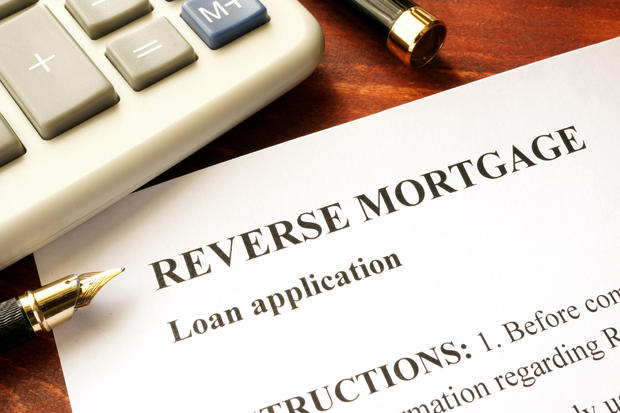Getty Images/iStockphoto
At a time when inflation has driven up the cost of everything Grocery shopping per Veterinary care, many Americans may be looking for new ways to pay for expenses. While credit cards and personal loans can help, they usually come with high interest rates that can push the borrower into further debt. Homeowners, however, have a unique opportunity to make ends meet by borrowing from equity They made them at home.
This can take many forms, from Home equity loan per HELOCs (Home Equity Line of Credit). Cash-out refinancing And reverse mortgage. Reverse mortgages, in particular, have unique advantages worth pursuing for some homeowners.
A reverse mortgage allows owners to use a portion of their home equity as needed. This applies to owners who have paid off their home in full and those who have paid a larger amount. This equity qualifies as tax-free income. However, it must be paid if the home owner dies or sells the home.
But not every homeowner qualifies for a reverse mortgage. In this article, we will discuss some viable options for those who qualify for a reverse mortgage as well as those who may not.
If you’re interested in a reverse mortgage, start by exploring your options here to see how much you can get.
Who qualifies for a reverse mortgage?
Reverse mortgages can only be obtained by homeowners who are 62 or older at the time of application. But that’s not the only prerequisite, according Consumer Financial Protection Bureau (CFPB). Specifically:
- You have to stay at home most of the year. In other words, it must be your primary residence.
- You must own the home outright (no mortgage balance) or have little debt to pay off. If you’re in the latter group, your balance must be small enough that you can pay it off in full when you close the reverse mortgage. If you don’t have enough savings to pay it off, you can use the reverse mortgage funds earned to pay off the initial loan.
- You may not owe any federal money. So, if you have federal tax debt or federal student loans, you must pay them off before applying or use reverse mortgage funds to pay off your debt.
- You should have at least some money for other household expenses. This includes but is not limited to maintenance, home emergencies, taxes and insurance. If you can’t afford these, you probably shouldn’t pursue a reverse mortgage.
- Your home should be in good condition. This condition depends on the lender you are using. Some are more flexible than others, so be sure to ask about this during the application process.
- You must agree to a mortgage consultation with a HUD (US Department of Housing and Urban Development) specialist. This expert will carefully describe the eligibility criteria and the pros and cons of a reverse mortgage for your situation.
Have more questions? Not sure about your exact qualifications? Check out your reverse mortgage options here now and find out!
Other options
Choosing a reverse mortgage is worth pursuing for homeowners, but it’s not for everyone (especially considering age restrictions). If you’re a homeowner who wants to access the equity in your home but doesn’t want to go the reverse mortgage route, consider these three options:
- A HELOC: A home equity line of credit works Much like a credit card provides you with a revolving line of credit that you can use to tap into your home equity. HELOCs typically come with lower interest rates than some other credit options and, if used for IRS-approved reasons, applicants can to cut The interest they paid on their taxes at the end of the year.
- A home equity loan: A home equity loan works As a second mortgage. You borrow a lump sum of the equity you have accumulated and pay it back within a predetermined period of time. These loans have and have lower interest rates than credit cards or personal loans duty free If used properly.
- A cash-out refinance: one with Cash-out refinancing, you apply for a new mortgage loan for more than the amount you currently owe the lender. Then you pay off the first loan with the second and pocket the difference as cash. Cash-out refinance loan rates aren’t as low as they were a few years ago, but they can still be worth it for young homeowners looking to access their home equity.
Bottom line
For some older homeowners, a reverse mortgage may be just the thing they need to help pay for new expenses. But they have to fulfill multiple qualifications to secure such funding. For those interested in other options, a HELOC, home equity loan or cash-out refinance loan may make more sense depending on the applicant’s goals and financial situation at the time of application.
Explore your reverse mortgage options today and learn more!


No Comments
Leave a comment Cancel